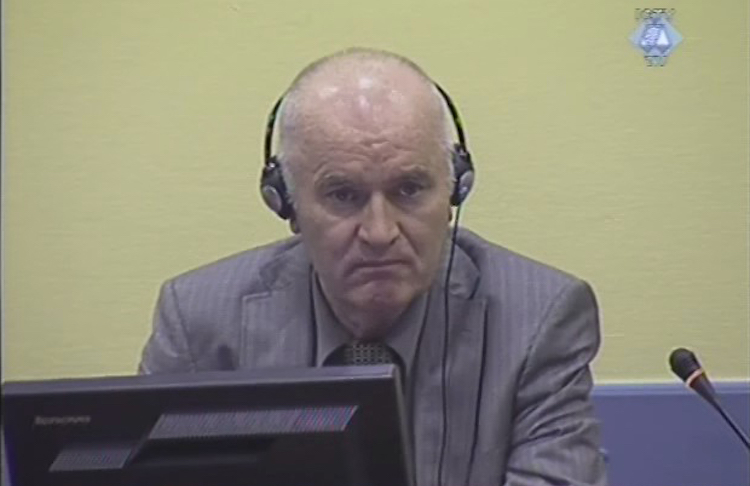Viewpoint by Jonathan Power*
LUND, Sweden (IDN-INPS) – Timing is everything. Dear Reader you’re right. If I was going to write on the conviction in a UN court of General Ratko Mladic I should have done it last week when the court sentenced him to life imprisonment for the mass murder of a significant part of Bosnia’s Muslim population during the civil wars in ex-Yugoslavia.
But does a week here or a week there matter when it has taken the ridiculous time of 22 years from the horrific event in Srebrenica, when 7,000 Muslim men were rounded up and slaughtered, to conviction? It was 16 years from the end of the war and 6 years from the date of his capture. The trial in Nuremberg of ex-Nazi leaders took only a year and took place immediately after the end of the Second World War.
The Yugoslav civil wars began in 1991 and ended in 2001. At wars’ end all the fugitives sought by the International Criminal Tribunal for the Former Yugoslavia were in “hiding”, apart from the president of Serbia himself, Slobodan Milosevic. That was what the U.S. and European governments mostly said. In fact the Tribunal claimed to have information on their whereabouts and journalists often came across them. But periodic police raids never caught anyone or rather said they did not.
NATO troops purposely turned a blind eye. British defence officials said that military action was unlikely to be successful in bringing Mladic and his boss Radovan Karadzic to trial. One winter’s day British UN troops carrying side arms were confronted by the general skiing down the piste at Sarajevo’s former Olympic skiing resort but made no move to arrest him. The soldiers decided to carry on skiing. Later NATO did send commandos to arrest various war crimes suspects, but Mladic simply went underground.
It came as a total surprise that Karadzic was arrested in Belgrade in July 2008, but police had been tracking him for months- Serbia badly wanted to enter the European Union and this was the price. They arrested him on a Belgrade tram. He was lightly disguised with a beard. He worked as a mystical psychiatrist.
Mladic, for his part, was described in court as “a casual sadist”. He would order attacks on civilians in Sarajevo by shouting “Raspameti” (Blow their heads off). He was filmed distributing chocolates to children but once the film crew had gone he recalled the chocolates. Then the children’s male relatives were murdered.
Until 2001 he had lived openly in Belgrade, attending football matches and restaurants.
In the end, after an intense amount of pressure had been brought to bear on the government of Serbia by the EU he was arrested in May 2011 at a cousin’s house in a village. His arrest was carried out by two dozen Serbian special police officers from the War Crimes Prosecutor’s Office. Mladic was not wearing a beard or any disguise.
So why the delays? Why six years from capture until conviction?
The Tribunal has had a big flaw. It proceeded at a snail’s pace, giving defendants too much leeway, granting delays, in particular to Milosevic, so he could research his case in more detail or because of illness (that did not incapacitate his mental facilities).
Richard Goldstone, the South African judge who was the Tribunal’s first prosecutor, described the atmosphere when he arrived in The Hague: “It had been established by the UN Security Council 15 months earlier yet investigations into war crimes had not yet begun. The judges, who had been appointed almost a year before, were frustrated and openly talked of resigning. The UN was facing its worst-ever financial crisis. The whole idea that Balkan leaders then pursuing genocidal wars would actually end up in the dock was, in many quarters, dismissed as a fantasy.”
Even that doesn’t explain why the Milosevic trial dragged on for four years until he died. It doesn’t explain the six-year delay with Mladic. It doesn’t explain why delay after delay meant that death saved from trial, according to the Court’s prosecutor, Carla del Ponte, the former Bosnian president, Alija Izetbegovic and the former Croatian president, Franco Tudjman.
Three things strike me, having sat in on the similar UN court in Cambodia during the trial of Khmer Rouge leaders. First, the collection of evidence went at an excruciatingly slow pace – at least in the eyes of a journalist whose profession demands he works fast. Second, the judges lent over too far backwards in an attempt to convince Serbian public opinion that justice was being done. But that was not found necessary in Germany. Third, the lawyers took advantage of this to spin things out, safe in the knowledge they would never be as well paid again.
The next indictments might be of Americans, Afghani Talibans, Colombians, Syrians and Burmese. Before that happens the International Criminal Court needs a good shake-up. [IDN-INPS – 28 November 2017]
*Note: For 17 years Jonathan Power was a foreign affairs columnist and commentator for the International Herald Tribune – and a member of the Independent Commission on Disarmament, chaired by the prime minister of Sweden, Olof Palme. He is the author of a newly published book, “Ending War Crimes, Chasing the War Criminals” (Nijoff). He also authored “Like Water on Stone – the History of Amnesty International” (Penguin). He forwarded this and his previous Viewpoints for publication in IDN-INPS. Copyright: Jonathan Power.
Photo: General Ratko Mladic, convicted after 22 years, in the International Criminal Tribunal for the Former Yugoslavia in June 2011
IDN is flagship agency of the International Press Syndicate.
facebook.com/IDN.GoingDeeper – twitter.com/InDepthNews

